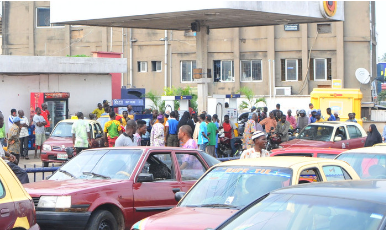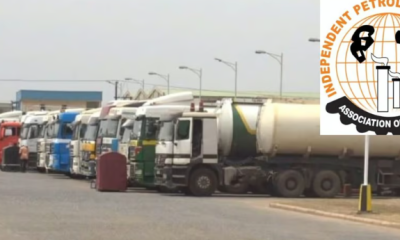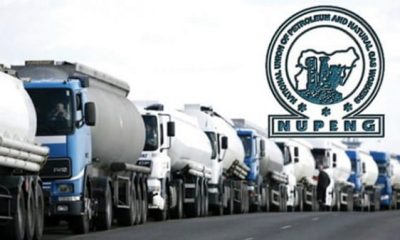There are indications that Nigerians may be in for another round of fuel scarcity if the strike action scheduled to begin today by Petroleum Tankers Drivers (PTD), an arm of the Nigerian Union of Petroleum and natural Gas Workers (NUPENG) is not called off soon, National Daily has gathered.
At the weekend, in a signed communique, NUPENG’s President, Mr. Igwe Achese, said CWC-in-Session resolved to give full backing to the industrial action in other to draw attention of stakeholders to some unresolved issues.
Some of the issues, Achese listed as bad roads, poor remuneration, insecurity and the alleged excesses of some security agencies.
He said the CWC-in-Session considered as inhumane the refusal of the National Association of Transport Owners (NARTO) to commence negotiation with the union for the renewal of the expired Collective Bargaining Agreement (CBA) on the working conditions of our Tanker Driver members in the PTD branch, after several appeals and even an ultimatum.
“To avert the pains and discomfort the action might cause, the CWC-in-Session calls on the Federal Government to urgently intervene and apprehend the unfortunate situation, to enable NARTO meet its obligations to tanker drivers,’’ the communique said.
The communique also called on the National Assembly to urgently pass the Petroleum Industry Bill, in order to tackle all the issues of corruption plaguing the oil sector.
ALSO SEE: Fuel scarcity looms as tanker drivers insist on nationwide strike
It also called for the commercialisation of the operations of the Nigerian National Petroleum Corporation (NNPC), as well as the turn-around-maintenance for the refineries, to increase local production and reduce the importation of petroleum products.
The communique commended the efforts of the federal government to encourage operators of illegal refineries to be integrated into the establishment of modular refineries. It also commended efforts of the government to shore up the Naira against the Dollar and the decline in the inflationary rate to 17.5 per cent.
The communique, however, called on government to address the challenges of poverty, unemployment, hunger and the rising cost of goods and services.
It also appealed to government to adopt measures to restructure the economy, as well as address challenges confronting the power sector.

 Entertainment1 week ago
Entertainment1 week ago
 Business1 week ago
Business1 week ago
 Health1 week ago
Health1 week ago
 Business1 week ago
Business1 week ago
 Latest1 week ago
Latest1 week ago
 Football1 week ago
Football1 week ago
 Entertainment1 week ago
Entertainment1 week ago
 Entertainment6 days ago
Entertainment6 days ago












